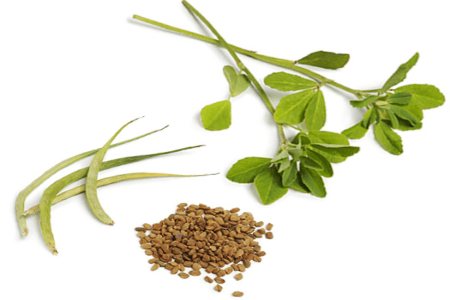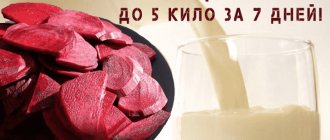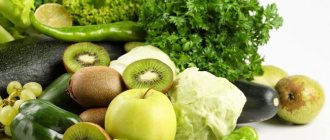Girls don’t always want to bother with complex weight loss diets and sports activities, so they are looking for new ways to lose excess weight. Now one of the popular methods is fenugreek seeds, reviews of which are quite positive in terms of effectiveness for weight loss. Fenugreek herb for weight loss not only helps in weight loss, but its use improves health due to its medicinal properties. Drinking a drink made from fenugreek seeds is necessary to get rid of waste and toxins that negatively affect human health.
Most often, the Helba drink made from fenugreek seeds and its various variations are used for weight loss. This fenugreek drink tastes like celery, some say it tastes like maple syrup, and others say it tastes like burnt sugar. To improve the taste and give it a more pleasant aftertaste, fenugreek seed should be thermally treated. Shambhala (one of the names for fenugreek) has also been used in folk medicine for thousands of years. Shambhala seed is characterized by antioxidant, antidiabetic, anti-inflammatory properties, and also improves human immunity.
Medicinal properties of fenugreek
This herb should be considered not only as a means for weight loss; its healing properties deserve special mention:
- The high fiber content makes it possible to use shamballa (another name for this plant) as a means of combating constipation. It is able to normalize the functioning of the digestive system without harm to health.
- The increased content of antioxidants allows fenugreek to be used as an anti-inflammatory agent. It is prescribed to patients with stomach ulcers, inflammation of the intestines; in Ayurvedic medicine it is recommended to use fenugreek infusions for inflammatory processes in the oral cavity, upper respiratory tract and even tuberculosis.
- Pectin, polysaccharides and tannins included in shambhala suggest its use to reduce cholesterol levels in the blood, quantitatively reducing its production by the liver.
- Athletes are recommended to use fenugreek as a means of increasing endurance.
- Diosgenin, which is part of fenugreek seeds, can increase lactation and reduce pain during menstruation; it is extremely useful if you want to stay healthy as a woman.
Advantages and disadvantages
One of the key advantages of helba seeds is their thermogenic effect, which causes the breakdown of fat in the abdomen, buttocks and thighs.
In addition, this plant contains a large amount of fiber, the consumption of which helps cleanse the body.
Due to the high content of plant estrogens, this product can influence hormonal levels. This factor makes it indispensable during menopause, when a decrease in the natural production of these substances by a woman’s body leads to weight gain.
In addition to this, a great advantage of fenugreek is that it can be used for weight loss by people with type 2 diabetes.
For a person with a weak stomach, the disadvantage of treatment with this plant may be its laxative effect, leading in some cases to diarrhea.
Fenugreek as a weight loss aid
To achieve weight loss, it is worth saying a few words about how to take fenugreek to lose weight. There are several ways to brew helba - this is what the infusion of fenugreek seeds is called. Two teaspoons of seeds are poured into one glass of boiling water and left to infuse overnight; in the morning, stevia infusion is added to the resulting infusion in a 3:1 ratio and the resulting drink is drunk. Then you must abstain from drinking and eating for three hours.
Important! A drink made from the contents of fenugreek beans is a hallmark of Moroccan and Egyptian cuisines.
Another recipe for making such a drink is to pour a tablespoon of fenugreek into a glass of clean water, bring to a boil, leave for 7 minutes and drink. This decoction reduces appetite, reduces anxiety and stress, which is also necessary when you start a diet. It improves intestinal motility, cleanses the intestines of waste and toxins.
There is another way to brew fenugreek seeds: 1/2 teaspoon of turmeric, 100 g of finely grated ginger root, 1/2 teaspoon of cumin, 10 g of helba seeds, the juice of one large lemon are mixed and poured in 500 g of boiling water. The resulting mixture is left to infuse for 3 – 3.5 hours. After this, the resulting infusion must be taken 35 - 40 minutes before meals in the amount of 150 g twice a day. If the taste of the infusion is very difficult for you to tolerate, you can add a teaspoon of honey to it.
Important! Drinking helba on an empty stomach can cause diarrhea. So be sure to eat something after taking it.
Do not confuse Helba drink and yellow tea - they have completely different properties and taste. Yellow tea is prepared from the green mass of the fenugreek plant, and helba for weight loss is made from the seeds found in the beans. The bitter, tart aroma of helba infusion reduces appetite, and sometimes even kills the feeling of hunger, which is a definite plus when taking it in the evening, when those losing weight are forced to carefully monitor the amount of food consumed so as not to disrupt the weight loss process.
Fenugreek contains the following beneficial substances:
| Vitamins | Micro and macroelements | Organic compounds |
| A | potassium | linoleic acid |
| IN 1 | sodium | linolenic acid |
| AT 3 | selenium | folic acid |
| AT 6 | iron | ascorbic acid |
| WITH | copper | tannins |
| RR | iron | squirrels |
| phosphorus | alimentary fiber | |
| zinc | enzymes | |
| calcium | lecithin | |
| manganese | trigogenin | |
| gum | saponins |
Fenugreek for weight loss - reviews
“I made tea from fenugreek and drank it every day for 2 months. After only 3 weeks I began to notice that my waist had shrunk, plus my complexion became healthier.” Grade:
Svetlana, 41, Tula
“After the birth of my second baby, I gained a lot of weight. I began to exercise intensively, and also drink powder from the seeds during meals. In 1.5 months I was able to lose only 4 kilograms and that, it seems to me, was due to physical activity.” Grade:
Irina, 33, Murom
“I made an infusion from the seeds according to the recipe recommended by the nutritionist. At first it was difficult to drink such a mixture; everything tasted very unpleasant and greatly interrupted the appetite. After about a week I got used to it and even liked it. I took the product for about 2 months and hoped for better results. Unfortunately, we only managed to remove 3 kilograms.” Grade:
Alexandra, 35 years old, Moscow
“Fenugreek really helped me in 3 months to remove the sides and unnecessary pounds, and also improve my well-being. At first, for a month, I brewed tea and drank it after meals. The taste is pleasant, not bitter. Then, on the recommendation of a nutritionist, I replaced tea with powder, which I added as spices to main courses. I'm satisfied with the result." Grade:
Margarita, 40 years old, Tambov
“I have been overweight for a long time and six months ago I decided to fight this problem with all my might. I started attending sports training, and worked with nutritionists to select a diet. The doctor also advised drinking fenugreek powder, half a teaspoon at a time, during meals. After 3-4 months, I achieved a weight loss of 6 kilograms, a decrease in hip volume by 5 centimeters. I think that the plant helps, only in conjunction with diets. However, I didn’t like that it takes a lot of time to grind it every day to a powdery state.”
Grade:
Victoria, 38 years old, Novosibirsk
Helba for weight gain
In pursuit of ways that can lead to weight loss, we completely forget that there is also the other side of the coin - that is, people who dream of gaining the missing weight. Helba can also serve here: they do not use an infusion of seeds, but an extract of helba as a spice. The unusual aroma of shambhala can whet the appetite of those who need a couple of extra pounds. The aroma and taste of helba spice enhances positive emotions from eating, encouraging a person to eat a little more food than he usually needed, which prevents weight loss. This effect is also used by some athletes.
Contraindications and side effects
Despite its obvious benefits for women who want to lose weight, there are a number of conditions in which taking helba seeds is contraindicated. These include:
- pregnancy, because the substances contained in this product can lead to premature birth,
- excess of normal concentrations of estrogen and prolactin and the presence of diseases associated with such disorders, for example, endometriosis,
- diabetes in an insulin-dependent form, since consuming fenugreek can provoke hypoglycemia,
- diseases of the gastrointestinal tract, such as gastritis or ulcers - the cause of this is a strong laxative effect,
- individual intolerance.
With regular use of helba, it is possible to develop a side effect such as diarrhea. In addition, men may experience problems with erectile function, since the estrogens contained in these seeds act as testosterone antagonists.
Contraindications to the use of helba
If you treat everything without fanaticism, then both the helba drink and the spice are safe for the body. But when you first start introducing the drink into your diet to achieve weight loss, you can expect the following:
- High fiber content can cause bloating, short-term diarrhea and gas formation.
- The urine may have an odor similar to maple syrup. Don't be alarmed if this happens. The symptom will disappear when the body gets used to the new thing.
- Helba is not recommended for people undergoing treatment for diabetes. If you still want to include this drink in your menu, consult your doctor.
- Fenugreek seed drink is contraindicated for pregnant women as it can cause premature birth.
- Fenugreek can cause allergic reactions (rhinitis, asthmatic reactions, swelling, etc.), especially in people with allergies to any legumes.
For those who are used to constantly monitoring the process of losing weight and waging a desperate struggle for beauty and slimness, sometimes it is simply necessary to introduce something new into their diet, into their lives, something that they have not tried before. This allows you to step out of your usual framework and experience other tastes, aromas, and sensations. Therefore, if you are one of the people who dream of losing weight, try using fenugreek for weight loss. What if this new thing becomes a great helper in achieving your goal?
Efficiency for weight normalization
One of the main arguments in favor of the effectiveness of a weight loss technique based on taking helba seeds is the results of a study conducted with the participation of 1000 volunteers. According to the experimenters, 90% of people in the group that regularly took fenugreek seed tea experienced a weight loss of 10 kg within a month.
This remedy begins to act 2-3 days after the start of administration. The plant can be used independently or be part of a comprehensive weight loss program along with the transition to proper nutrition and physical activity.
In addition, many women note that, in addition to eating it, fenugreek is also suitable for poultices that can help fight cellulite. For this purpose, it is no longer the seeds of the plant that are used, but its stems.
How to take helba seeds correctly?
Helba seeds are used to prepare infusions and teas; when ground, they are added as a spice to dishes and cosmetics.
The most popular way to brew fenugreek is a couple of teaspoons per glass of boiling water. The drink is infused for about 10 minutes and the golden aromatic decoction is drunk, and some people prefer to eat the seeds afterwards. Steamed, they go well with honey.
It is important to know! Eating helba seeds and decoction on an empty stomach can have a laxative effect. If you have a weak stomach, you should definitely take this into account!
What to remember
- Fenugreek can be consumed as a seasoning, added to tea, or used as an ingredient on its own.
- Thanks to their properties, the seeds of the plant burn excess fat not only in certain areas of the body, but also on the walls of internal organs.
- Fenugreek normalizes the functioning of the stomach and intestines and restores microflora. Thanks to its diuretic effect, it cleanses the body of waste and toxins, improves well-being, increases tone, and restores metabolism.
Nowadays, it is increasingly difficult to meet a person who would not be puzzled by the problem of losing weight. Among the variety of means for actively combating excess weight, nutritionists highlight fenugreek for weight loss. Thanks to this plant, you can not only lose extra pounds, but also strengthen the body as a whole.
Application of helba seeds
Needless to say, self-medication is more popular among people than ever. And this plant is used quite actively.
- If you have indigestion, chronic cough, constipation or any cold, even toothache, this plant will help.
- The seeds are rich in B vitamins and microelements, and it is not surprising that bone marrow, blood plasma, reproductive organs, nerve and stem cells feed on it.
- It has an expectorant and anti-inflammatory effect.
- They help reduce hunger and have a direct effect on the digestion process.
- Tea made from helba grains will calm stress.
- Restore strength during exhaustion, increase hemoglobin.
- The seeds have joined the list of cholesterol-lowering agents.

Fenugreek: what kind of plant is it?
First, let's look at what fenugreek is! This is an annual shrub plant classified as a member of the Legume family. The height of the bush reaches 60 centimeters. The stem is branched, thin, straight. The stems are covered with small oval-shaped leaves, collected in triple combinations - rosettes. The flowers are small, white or light blue. The fruits ripen in small oblong boxes (up to 10 cm long). Each achene contains from 10–15 to 20–25 seeds.
Where does fenugreek grow?
This is a very unpretentious crop that often chooses clayey, loamy soils. This plant can often be found in the wild. But, since people highly appreciated the properties of fenugreek, they began to grow it in their own garden plots.
The plant is widespread in the following countries: Armenia, Turkey, Egypt, India, Ethiopia, Iran, Iraq. There is a lot of fenugreek in the Caucasus and Eastern European countries. There is culture in Morocco, Argentina, France, and the USA.
It is worth saying that in the Mediterranean a certain variety predominates - blue fenugreek. Its above-ground part is used to prepare spicy seasoning. But this is a rarer, and therefore quite valuable, culture, which is more difficult to find in the public domain than the option described below.
Fenugreek is a more popular and widespread plant species. Its properties have been well studied. Therefore, the variety is used not only in cooking, but also for medical and cosmetic purposes.
Fenugreek is also known by other names:
shambhala, helba, mushroom herb, fenugreek, chaman.

Traditional medicine recipes
The simplest recipe for using fenugreek for medicinal purposes (for acute respiratory infections, vitamin deficiency, to improve immunity) is tea. Helba seeds are fried, like coffee, in a frying pan. To prevent the drink from becoming bitter, you should not keep the seeds until they turn red; just wait until a uniform golden hue appears. Then they are ground. Boil the drink for 5-7 minutes over medium heat, pour a glass of boiling water over a teaspoon of powder. A little honey and ginger to taste enhance the healing effect of tea.
If you have a sore throat, you can suck on homemade helba lollipops. To prepare them, melt 2-3 tablespoons of granulated sugar, add a pinch of ground helba, mix and pour into molds to harden.
For constipation, it is enough to take half a teaspoon of helba seed powder with plenty of water at night. The next morning the problem will be resolved naturally.
If you dissolve a teaspoon of ground helba seed in a cup of warm milk, this drink acts as a remedy:
- tonic and restorative;
- for ENT diseases;
- lactogonic;
- decongestant.
The following paste helps with anemia: grind 100 grams of dates, dried apricots, and figs, add 2 tablespoons of ground helba seed and 1/3 cup of honey. Store the paste in the refrigerator in a tightly closed container. Take a tablespoon before meals, washed down with milk, three times a day.








